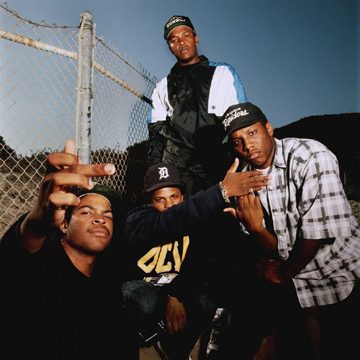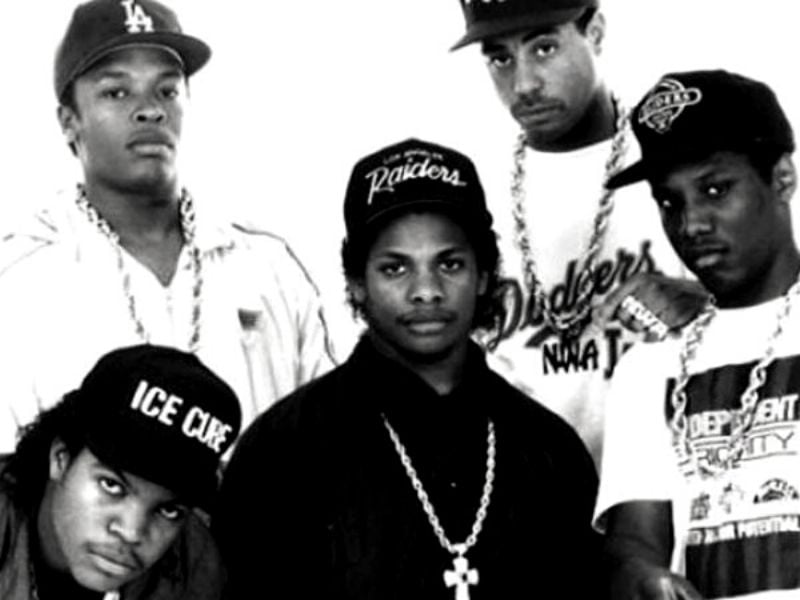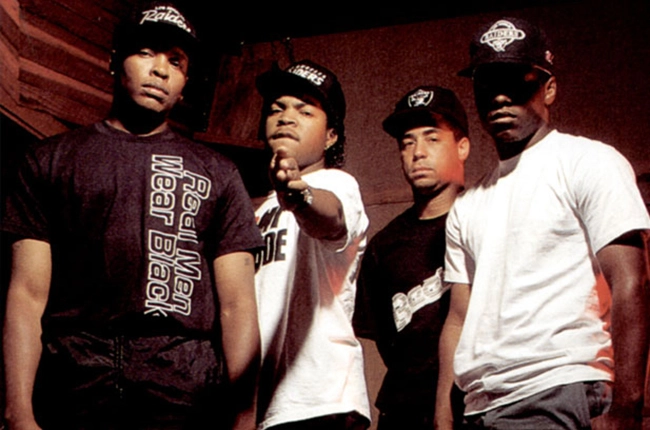Blogs
The Influence of N.W.A on Race Relations in the US: A Cultural and Historical Analysis
The late 1980s and early 1990s were a pivotal time in American history. The country was grappling with issues of racial inequality, police brutality, and discrimination. During this time, a group of young men from Compton, California, burst onto the music scene with a raw and unapologetic sound that challenged the status quo. N.W.A, or Niggaz Wit Attitudes, quickly became one of the most controversial and influential hip-hop groups of all time, shaping the influence of the N.W.A on race relations in the US.
In this blog post, we will examine the cultural and historical impact of N.W.A on race relations in the US. We will explore the group’s rise to fame, the controversial lyrics and messages in their music, and their influence on the hip-hop industry and music as a whole. We will also look at how N.W.A addressed issues of police brutality and systemic racism through their music and the lasting legacy they have left on society today.
Historical Context of Race Relations in the US

To understand the influence of the N.W.A on race relations in the US, we need to first look at the historical context of the time. The country was still reeling from decades of segregation and discrimination, which had been challenged by the civil rights movement of the 1960s. However, despite the gains made during that time, racism and inequality still persisted, particularly in inner-city communities.
It was during this time that hip-hop emerged as a powerful tool for social and political commentary, highlighting the influence of the N.W.A on race relations in the US. The genre provided a platform for artists to speak out about the issues affecting their communities and to give voice to those who had been marginalized and oppressed.
N.W.A’s Rise to Fame

N.W.A was formed in 1986 by Dr. Dre, Eazy-E, Ice Cube, MC Ren, and DJ Yella. The group’s debut album, “N.W.A and the Posse,” was released in 1987 and featured the hit single “Boyz-n-the-Hood.” However, it was their second album, “Straight Outta Compton,” that really put them on the map.
The album was filled with controversial lyrics and messages that addressed issues such as police brutality, racial profiling, and the war on drugs, showcasing the influence of the N.W.A on race relations in the US. The title track, “Straight Outta Compton,” became an anthem for young black men who felt oppressed by the system. The album was a massive success, selling millions of copies and cementing N.W.A’s place in hip-hop history.
N.W.A’s Impact on Race Relations in the US

N.W.A’s influence on the hip-hop industry and music as a whole cannot be overstated, and their impact on the influence of the N.W.A on race relations in the US is undeniable. The group’s raw and unapologetic sound paved the way for a new generation of artists who used their music to address social and political issues. N.W.A’s music also sparked conversation and debate about race relations in the US, forcing people to confront the uncomfortable truths about systemic racism and discrimination.
One of the most significant ways that N.W.A addressed these issues was through their music videos, highlighting the influence of the N.W.A on race relations in the US. The video for “Straight Outta Compton” showed the group being harassed and brutalized by police officers, shining a light on the reality of police brutality in inner-city communities.
N.W.A also addressed issues of racial profiling in their music. The song “Fuck tha Police” is one of the most controversial and iconic tracks in hip-hop history, showcasing the influence of the N.W.A on race relations in the US. The song criticized police brutality and racial profiling, and the lyrics were seen as an attack on law enforcement. The FBI even sent a letter to the group, warning them about the message they were promoting.
Despite the controversy, N.W.A’s music had a profound impact on the way society viewed issues of race and inequality. The group’s willingness to speak out about these issues, no matter how uncomfortable or controversial, inspired a new generation of artists and activists to use their platform to promote social justice and equality.
N.W.A’s Legacy

N.W.A’s impact on the influence of the N.W.A on race relations in the US can still be felt today. The issues they addressed in their music, such as police brutality, racial profiling, and discrimination, are still prevalent in American society. The group’s legacy also extends beyond music, as they paved the way for a new generation of artists who use their platform to speak out about social and political issues.
In addition to the impact they had on the music industry and society, N.W.A’s influence on race relations in the US can also be seen in their entrepreneurial spirit. The group founded their own record label, Ruthless Records, and took control of their own careers, paving the way for other artists to do the same.
Their success also challenged the traditional gatekeepers of the music industry and created opportunities for underrepresented communities. The rise of gangsta rap and its impact on race relations in the US opened doors for other artists who had previously been overlooked by the mainstream music industry.
N.W.A’s influence on race relations in the US cannot be understated. The group’s impact on the music industry, society, and entrepreneurialism continues to be felt today. As we look back on the legacy of N.W.A, we can see how their music and message have had a lasting impact on the way we think about race and inequality in America.
In conclusion, N.W.A’s influence on race relations in the US is a testament to the power of music and activism. Their willingness to address difficult and controversial topics head-on and to challenge the status quo inspired a new generation of artists and activists to use their platform to promote social justice and equality. As we continue to grapple with issues of race and inequality in America, we can look to the legacy of N.W.A as a source of inspiration and hope. Don’t forget to subscribe to our newsletter for more content on cultural and historical topics like this one.
>>>Related Blog: The Cultural Impact of N.W.A: How They Revolutionized Hip-Hop and African American Culture

